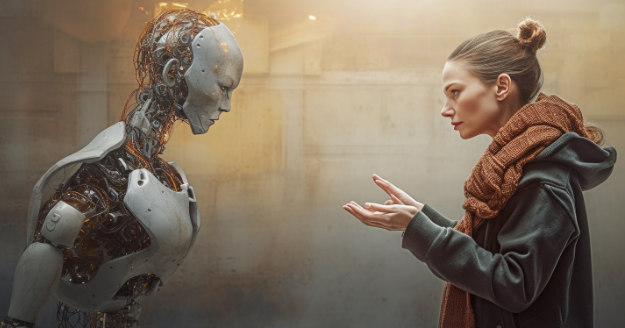The Rise of AI-Assisted Creativity: How Artificial Intelligence is Transforming the Arts and Entertainment Industry
In a world where technology constantly pushes boundaries, Artificial Intelligence (AI) is making its mark in the most unexpected of places: the realm of art and entertainment. Beyond its well-known applications in fields like healthcare and finance, AI is redefining creativity, challenging our perceptions of what it means to be an artist, and reshaping the way we consume media. This article delves into the fascinating journey of AI-assisted creativity and its profound impact on the arts and entertainment industry.
The Canvas of AI Art
AI-Generated Artworks
AI algorithms have the power to create breathtaking visual art, from paintings to digital sculptures. Artists and technologists collaborate to develop algorithms that can generate art by imitating the styles of famous painters or creating entirely novel compositions. The art world is witnessing a new wave of AI-generated masterpieces, sparking debates about the nature of creativity and the role of artists.
Art Restoration and Preservation
AI plays a vital role in restoring and preserving priceless works of art. Deep learning models can analyse deteriorated paintings, identify missing or damaged elements, and recreate them with astonishing precision. This technology ensures that art from the past can be enjoyed by future generations in its original glory.The Symphony of AI Music
Music Composition
AI is composing music that rivals the works of human composers. Using machine learning algorithms, AI systems analyse vast catalogues of music to understand patterns, harmonies, and melodies. They can then generate original compositions across genres, from classical symphonies to modern pop songs. This technology is expanding the boundaries of what is musically possible.
Music Collaboration
AI is becoming a collaborative partner for musicians. Artists can feed AI systems with partial compositions or ideas, and the AI can provide suggestions for chord progressions, instrument arrangements, and even lyrics. This symbiotic relationship between humans and AI is leading to groundbreaking music that blurs the lines between man and machine.
The Silver Screen and AI
Scriptwriting and Storytelling
AI is making its way into the world of cinema and television. Machine learning models analyse vast datasets of scripts and movie plots to identify successful storytelling patterns. Some AI systems are even capable of generating screenplay drafts, offering a helping hand to screenwriters and directors in the creative process.
Visual Effects and Animation
AI-driven visual effects and animation are transforming the way movies are made. AI can generate realistic CGI characters and environments, reducing production costs and time. Films like "The Irishman" and "The Mandalorian" showcase how AI can de-age actors and create lifelike characters, pushing the boundaries of visual storytelling.
The Written Word, AI Style
AI-Generated Literature
AI is becoming a co-author in the world of literature. GPT-3, a language model developed by OpenAI, can generate human-like text, including poetry, short stories, and even news articles. This technology is not only a boon for content creation but also raises questions about the authenticity of literary works and the role of authors.
Editing and Proofreading
Writers and editors are embracing AI tools to enhance the quality of their work. AI-driven grammar and style checkers provide instant feedback, helping authors improve their writing. This not only saves time but also ensures error-free content.
The Challenges of AI-Assisted Creativity
As AI becomes an integral part of the creative process, several challenges and ethical considerations emerge:
Intellectual Property
Determining ownership and copyright for AI-generated art and music poses a complex legal challenge. Should the creator be the programmer, the AI itself, or both? Legal frameworks are still evolving to address these questions.
Loss of Human Creativity
While AI can assist in creative tasks, there is a concern that it might homogenize artistic expression. Critics argue that relying too heavily on AI may lead to a loss of the unique human touch in art, music, and storytelling.
Ethical Use of AI
The responsible and ethical use of AI in art and entertainment is crucial. Ensuring transparency in AI-generated content and respecting copyright and privacy concerns is vital to maintaining trust with audiences and creators.
The rise of AI-assisted creativity is a testament to the ever-evolving relationship between humans and technology. From generating art to composing music, crafting stories, and even assisting with writing, AI is leaving its indelible mark on the arts and entertainment industry. While challenges and ethical dilemmas must be navigated, the fusion of human ingenuity and AI capabilities promises a future of boundless creative possibilities. As we embark on this journey, one thing is certain: the canvas of creativity has expanded, and the symphony of innovation continues to evolve. Welcome to the age of AI-assisted artistry.







